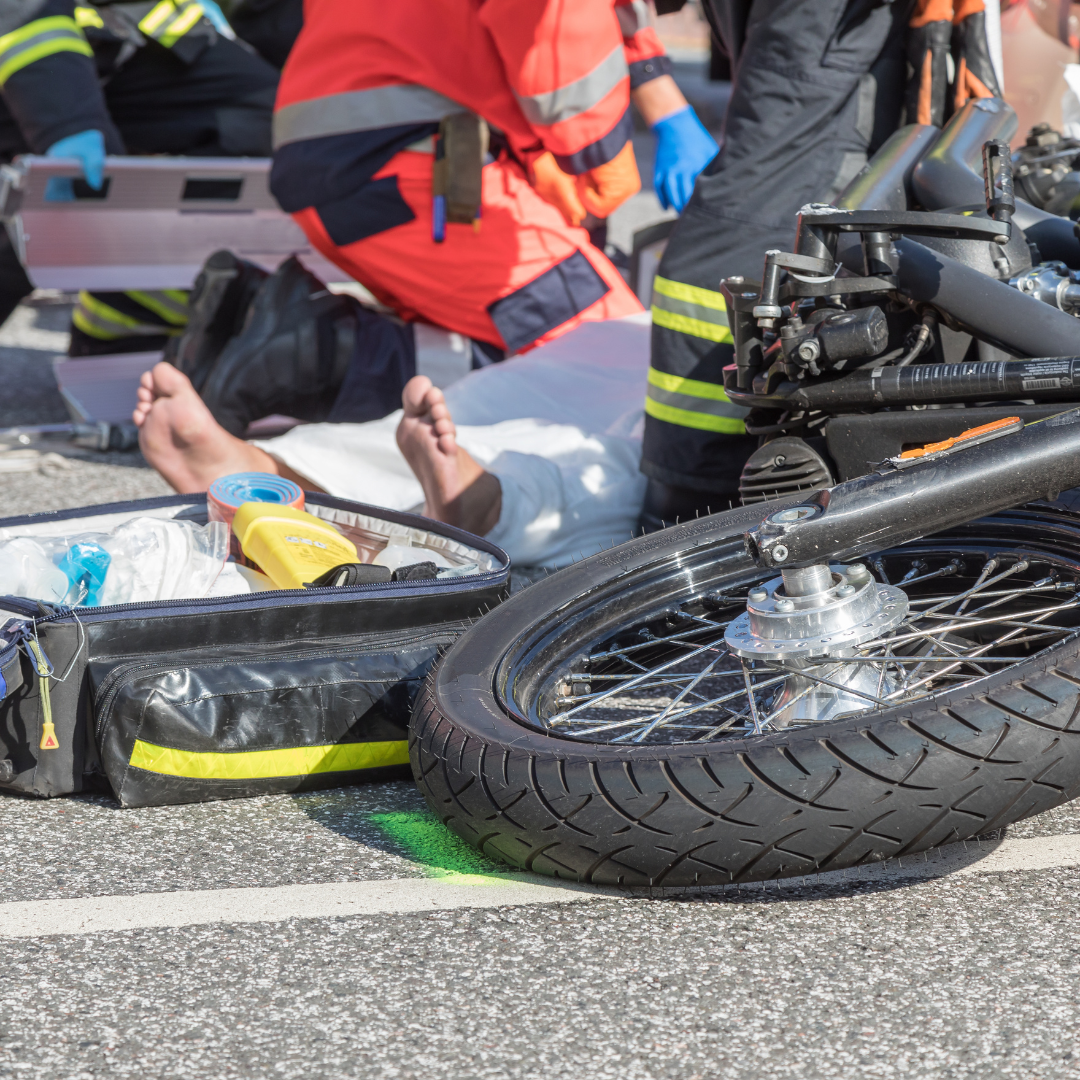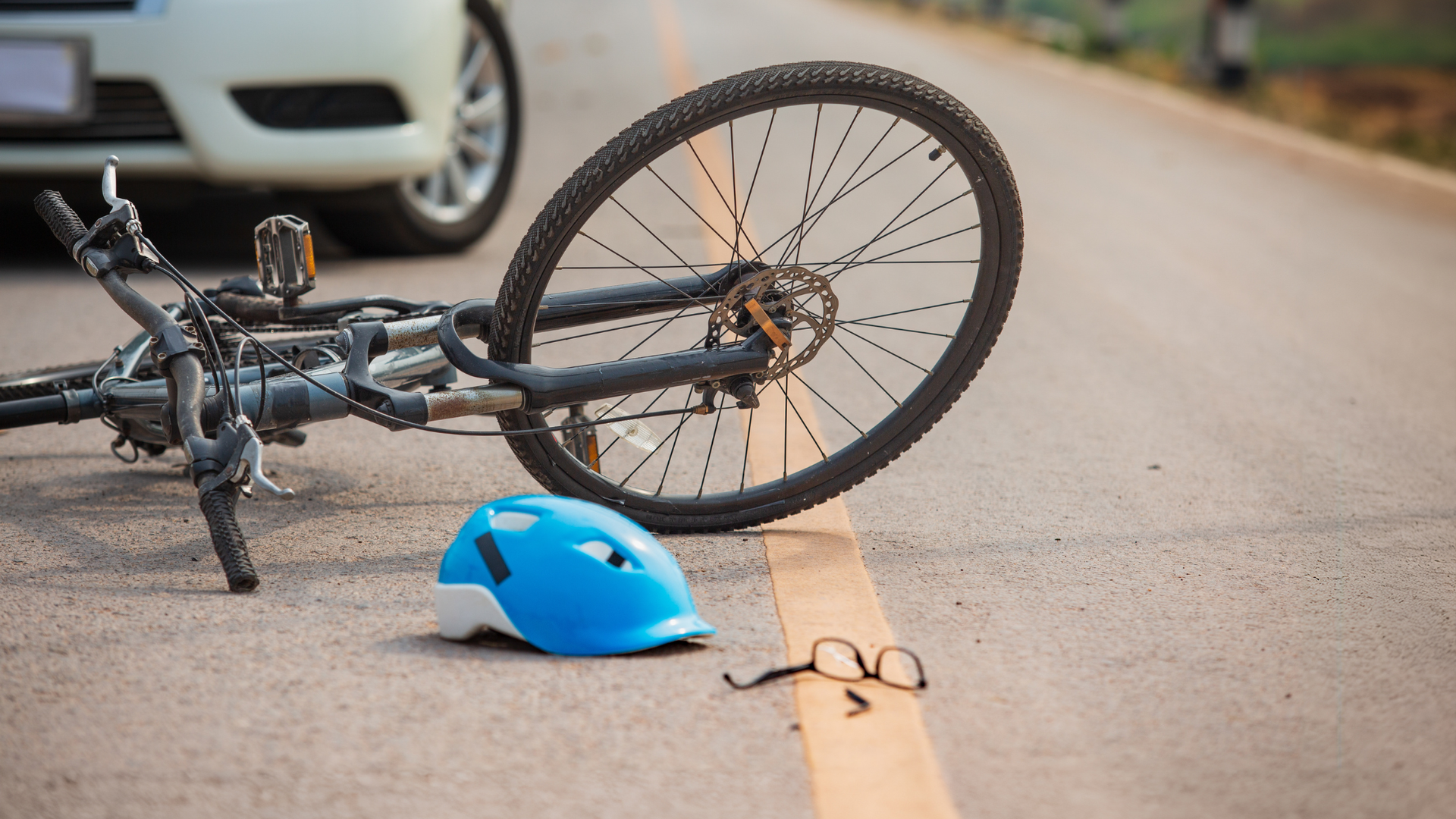What a Motorcycle Accident Lawyer in New Haven Looks for When Proving Liability and Damages
Motorcycle accidents are often devastating, physically, emotionally, and financially. Riders typically suffer more serious injuries than car occupants due to the lack of protection. Even when a crash clearly results in harm, proving who was at fault and what those injuries are worth isn’t automatic. That’s where the legal process becomes more complicated than many expect.
Unlike routine fender benders, motorcycle accidents often raise difficult questions about visibility, speed, road conditions, and driver behavior. And unfortunately, motorcyclists are sometimes unfairly blamed based on stereotypes or assumptions. That’s why having a motorcycle accident lawyer in New Haven matters.
We don’t just file paperwork; we carefully investigate the details, gather the right evidence, and build a strong claim that reflects the full extent of the harm done. This blog walks through exactly what a lawyer looks for in these cases and how we help prove both liability and damages.
The Unique Nature of Motorcycle Accidents
Motorcycle crashes aren’t just smaller versions of car accidents; they involve a completely different set of risks. Motorcyclists are more exposed to the elements and other vehicles. They don’t have seatbelts, airbags, or a metal frame around them. Even with a helmet and protective gear, a low-speed collision can result in serious injuries. That’s why working with a motorcycle accident lawyer in New Haven is so important, someone who understands the unique dynamics of these cases and knows how to fight for the compensation injured riders truly need.
In New Haven and across Connecticut, many motorcycle accidents are caused by drivers who simply don’t see the rider. Common scenarios include drivers making unsafe left turns, merging into a motorcycle's lane, or following too closely. Distracted driving, whether it’s a phone, GPS, or conversation, is another major factor. And then there are road hazards like loose gravel, potholes, and debris, which may not affect a car much but can easily cause a motorcycle to lose control.
Just because a rider is injured doesn’t mean liability is automatically clear. Proving it often requires careful attention to detail and a strong pushback against common biases that motorcyclists are inherently reckless. That’s why a focused investigation is so important.
Determining Who Was at Fault and How
The first step in building a motorcycle accident case is determining liability, who caused the crash, and how. Under Connecticut law, this involves proving four elements: that the other party had a duty of care, breached that duty, directly caused the accident, and caused actual damages.
As a motorcycle accident lawyer, I start by gathering critical evidence. This includes police reports, any citations issued, and statements made by both parties and any witnesses. Dashcam or surveillance footage can be especially valuable if available. I also examine the physical evidence, where the vehicles ended up, the damage patterns, road markings, and the condition of the road surface.
Statements made to EMTs or law enforcement at the scene can carry weight, especially if they contradict what the other driver says later. We also take Connecticut’s comparative negligence rule into account. If the rider is found to be more than 50% at fault, they may not be eligible for compensation. If they’re less than 50% at fault, their recovery can be reduced. That makes an accurate assessment of fault essential right from the start.
Preserving and Examining Evidence Early Matters
One of the biggest mistakes in any motorcycle accident case is waiting too long to gather evidence. Scenes change quickly, skid marks fade, weather erases debris, and damaged gear is repaired or discarded. I always tell clients: if you can, take photos immediately after the crash. Capture the road, the position of vehicles, damage to your motorcycle, and your injuries. These images can become key evidence.
Beyond photographs, we also work to secure things like black box data from other vehicles (when available), and we may consult with accident reconstruction experts. In some cases, we’ll return to the crash site ourselves or with an investigator to get a full understanding of visibility, signage, and road conditions.
Helmet damage, torn clothing, and broken gear can also provide valuable insight into the force and direction of the impact. The sooner we begin this process, the more complete the case will be.
What a Lawyer Reviews When Calculating Damages?
When you’ve been injured in a motorcycle accident, the term “damages” refers to the full scope of losses you’ve experienced, not just financially, but physically, emotionally, and in your daily quality of life. Calculating damages is one of the most important aspects of any personal injury claim, and it goes far beyond simply adding up your hospital bills. As a lawyer, I look at how the crash has affected every part of your life, your ability to work, your long-term health, and even how you sleep, move, or connect with your loved ones.
We begin by looking at economic damages, which are the tangible, measurable losses you’ve incurred. This includes things like the cost of emergency medical treatment at the scene, ambulance transport, and your initial hospitalization. For many clients, that’s just the beginning. We also gather documentation for surgeries, follow-up care, prescriptions, physical therapy, and any specialist visits you’ve needed. If you’ve missed work, we calculate the wages you’ve lost during recovery, and if your injuries prevent you from returning to your job or force you into a different role, we also evaluate the long-term impact on your earning capacity. Your motorcycle’s damage or total loss is also factored in, whether it needs repairs or a full replacement.
But not all damages are financial. That’s why we also assess non-economic damages, which can be harder to quantify but are just as important. These include your physical pain and suffering, both the initial trauma and any ongoing discomfort. If you’ve developed anxiety, PTSD, or depression as a result of the crash, those emotional struggles are part of your claim. Loss of mobility, the inability to enjoy activities you once loved, and changes in your personal relationships all reflect the true impact of an injury. Permanent scarring, disfigurement, or chronic pain can alter the way you see yourself and move through the world, and we make sure those changes are recognized, too.
For clients who’ve experienced life-altering injuries, I often work with professionals like life care planners or forensic economists. These experts help us estimate the cost of future surgeries, long-term care, ongoing rehabilitation, and lost income over time. We use this information to build a comprehensive damages profile that doesn’t just focus on today’s bills, but accounts for what you may face in the months or years ahead. That way, your legal claim reflects the full reality of your recovery, not just a snapshot of the moment.
Medical Documentation and Its Role in the Case
Medical records form the backbone of any injury claim. Without strong, consistent documentation, even serious injuries can be questioned by insurance companies. That’s why we work closely with clients to make sure they’re getting the treatment they need, and that every step of their recovery is recorded properly.
We gather all relevant documents: ER records, diagnostic tests, surgery notes, physical therapy updates, and mental health treatment records. If you need to see a specialist or therapist, we can help coordinate that care. When necessary, we consult medical experts to explain complicated injuries or provide projections for future treatment.
One of the most important things we stress to clients is not to delay or skip appointments. Gaps in care can be used by insurers to argue that the injury isn’t serious or that you’ve fully recovered. Consistent care supports your claim and helps ensure you get the compensation you need.
Addressing Common Defenses in Motorcycle Accident Cases
Motorcycle accident claims are often met with pushback. Defense lawyers and insurance companies frequently use a set of predictable arguments to shift blame or reduce the payout.
- “The rider was speeding.” We review accident reports, witness statements, and vehicle damage to evaluate speed objectively.
- “They weren’t wearing a helmet.” In Connecticut, helmets are not required for riders over 18. That said, not wearing one may still result in court. We focus on injuries unrelated to helmet use to strengthen the claim.
- “It was the weather or the road’s fault.” While poor conditions may play a role, drivers still have a duty to adjust their behavior accordingly. We push back on these arguments with expert testimony or scene analysis.
- “The rider assumed the risk.” Choosing to ride a motorcycle doesn’t mean you’re responsible for someone else’s negligence. We counter this with strong facts and legal reasoning.
Every case is different, but the defenses often follow the same patterns. Anticipating them and preparing responses is a key part of building a strong claim.
Building a Case That’s Ready for Negotiation or Trial
While the majority of motorcycle accident claims are resolved through settlement, the best outcomes usually come when the case is prepared as if it might go to trial. Thorough preparation is the foundation of strong negotiations. Insurance companies and defense attorneys are far more likely to offer fair compensation when they know the case has been fully developed and could hold up in court. That preparation sends a clear message: we’re not here to accept the first offer, we’re here to recover what’s fair and necessary.
As an attorney, building a solid case starts with laying out a detailed and factual timeline of events. We reconstruct what happened before, during, and after the accident by gathering police reports, medical records, photographs, witness statements, and any available video footage. This timeline helps us explain exactly how the crash occurred and how your injuries have progressed over time.
We also rely heavily on strong medical documentation. This includes treatment records, diagnostic imaging, therapy notes, surgical reports, and prognosis letters from your providers. These documents help illustrate not only the severity of your injuries but also the expected duration of your recovery and any permanent limitations you may face. When necessary, we bring in medical experts to clarify complex injuries or future care needs.
Expert opinions are also valuable when proving liability or long-term impact. In cases involving disputes over who was at fault, we may work with accident reconstructionists to explain how the crash happened. When your injuries involve permanent loss of function or affect your ability to work, we may bring in economists, vocational experts, or life care planners to detail the future consequences.
Communication is another essential part of case preparation. We stay in regular contact with our clients, reviewing documents together, explaining every step of the process, and helping you weigh your options as things develop. Whether it's a new piece of evidence or an offer from the insurance company, you’ll be involved in every key decision, and you’ll always understand why that decision matters.
Finally, we manage all communications with insurance companies and opposing counsel. You don’t have to worry about saying the wrong thing or navigating legal jargon; we take care of that for you. If a fair settlement is offered, we will walk you through the pros and cons. If it’s not enough, we’re ready to take the next step.
And if going to court becomes necessary, you won’t be caught off guard. We’ll prepare you for what to expect, explain courtroom procedures, and stand by your side every step of the way. Whether your case resolves at the negotiation table or in front of a judge, our goal is always the same: to advocate for you and help secure a resolution that reflects the full extent of what you’ve been through.
The Importance of Working with a Lawyer Who Listens
Motorcycle accident claims aren’t just about numbers and documents. They’re about real people whose lives have been disrupted or changed forever. That’s why we make it a point to listen, to truly understand what you’re going through and how your injury has affected your life. If you’re searching for a motorcycle accident lawyer in New Haven who will treat your case with the care and attention it deserves, Santoro Injury Law, LLC is here to help.
At Santoro Injury Law, I work directly with each client. I don’t pass cases off or leave people waiting for updates. If you have a question, I’ll answer it. If you’re unsure about a decision, I’ll walk you through the options. This kind of communication helps build trust, and it helps us build stronger cases.
You deserve more than just legal help. You deserve to be heard and respected throughout the process.
Final Thoughts: Accountability, Recovery, and Moving Forward
Being injured in a motorcycle crash is frightening and frustrating. The road to recovery can be long, and you shouldn’t have to walk it alone. A strong legal claim can’t undo the damage, but it can hold the right people accountable and help you regain stability. Whether you're looking for a Personal Injury Lawyer, Workers Compensation Lawyer, or Motorcycle Accident Lawyer, knowing your rights matters.
If you’re not sure whether you have a claim, that’s okay. You don’t have to figure it all out today. Ask questions. Learn more. And when you’re ready, know that help is available. At Santoro Injury Law, LLC, I offer direct, honest legal guidance to people who’ve been hurt in motorcycle accidents, car crashes, or slips and falls. Whether you need a Car Accident Lawyer, Slip and Fall Accident Attorney, or Wrongful Death Attorney, we’re here to support you.
No pressure, just answers, support, and the commitment to help you move forward. If you’d like to talk about your situation, visit us to schedule a conversation.



